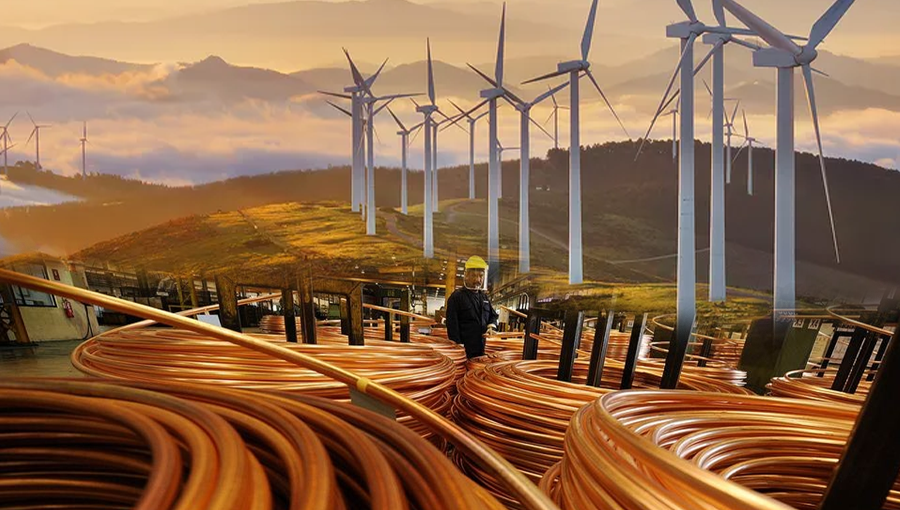India–US Trade Tensions Rise Over Steel and Auto Tariffs NMDC Limited reports a 38% drop in Q4 FY24 consolidated net profit RINL to Raise $23 Million Through Land Sales Amid Crisis

The renewable energy sector in India is facing issues with budgeting and rising expenses due to the rising prices of copper, a crucial mineral used in the production of power equipment. Industry sources report this. The price of copper, which is essential for producing power equipment, has increased recently due to increased manufacturing activity in China and the US, as well as new US sanctions against Russian imports.
The price of copper has risen by 23% in the last two months, from April 2024 to the present, raising the overall BOS cost of renewable energy projects by over 3.5%, according to the chief product officer of AMPIN Energy Transition, an independent power producer. “This is really impacting landed renewable project costs in such a competitive Indian market,” he added.
Copper is an essential material in a wide range of power sector equipment, including transformers, insulators, cables, current transformers, and potential transformers. Regarding solar projects, about 5 tonnes of copper is required per MW. While onshore and offshore wind farms require 4.3 tonnes and 9.6 tonnes of copper content per MW, respectively.
The reasons behind the price rise include the weak US dollar, which can act as a disincentive to producers to increase output and copper supply. Copper ore production is concentrated in South America, particularly in Chile, which accounts for around one-third of the global mined copper supply.
“The supply of copper ores, the quality of the ores and the costs of extracting them also have an impact on the copper price. Meanwhile, unforeseen events like worker strikes, earthquakes, bad weather and geopolitical instability can increase copper prices,” added Hartek Group.
According to ICRA, while the increase in copper prices would lead to upward pressure on the capital cost for the solar power projects to a certain extent, the developers continue to benefit from the relatively low solar PV module prices. “The modules constitute a major component of the capital cost for solar power projects. Over the past 12 months, the solar bid tariffs have remained in the range of ₹2.5 to ₹2.7 per unit,” it added. According to the latest assessments by the rating agency ICRA, the production of refined copper will likely be impacted by imminent production cuts from Chinese smelters due to falling margins.
Additionally, new sanctions imposed by the US and the UK on Russian metals, including aluminium and copper, are set to intensify supply challenges, adding to the existing bottlenecks in the supply chain of India's renewable energy sector in the near term. This situation raises concerns about sustained cost escalations and potential project delays.
Also Read : Indian government panel backs higher carbon tax on coal imports Suzlon Group obtains 82 MW wind energy project from Oyster Green